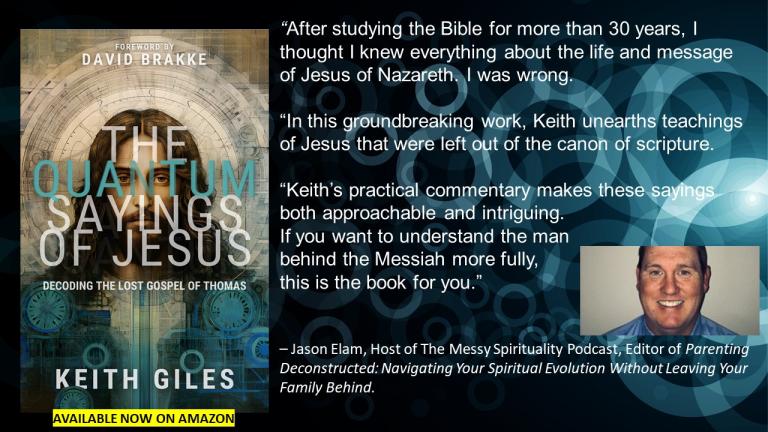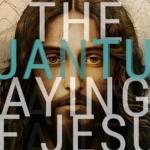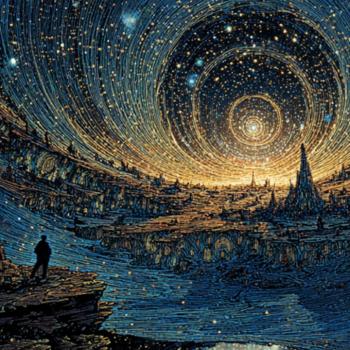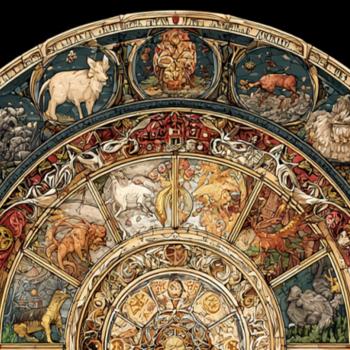
For many of us, our ideas about Jesus have shifted since the early days of our Christian faith. I started out talking to God as a young boy in Elementary school without knowing anything about the Bible or Jesus. Later on, I was told that God’s son was Jesus and that Jesus loved me and died for me. So, I started looping Jesus into those late night conversations with his Dad.
Soon, I was singing songs about worshipping Jesus and teaching Bible Studies about how Jesus was the second person of the Trinity, and eventually even writing blogs and articles and books about the uniqueness of Jesus.
For me, the best parts of Christianity were the Jesus parts. The red letters were the parts that made me reimagine what it meant to love God, or to love my neighbor. Jesus told stories and and asked questions and challenged the status quo. How could I not love Jesus?
But, then all of that started to shift. I started to question whether or not Jesus and the Christ were the same thing. I wondered if Christ was in everyone or only in those who prayed a prayer on Sunday.
Later, I realized that some of that white hot wisdom that Jesus spoke about was independently taught long before he was born. People like Socrates and Buddha, and books like the Egyptian Book of the Dead, and Plato, seemed to be on to the same thread as Jesus. Or, maybe Jesus was on the same thread as they were?
At any rate, my ideas about the Deity of Jesus also began to shift. I realized that when Jesus talked about being one with God, he was also saying that we were one with God, and with him, and with one another. I realized that early Christians like the Apostle Paul talked about the Christ as a consciousness that wasn’t only referring to Jesus of Nazareth, but to anyone and everyone who found themselves living and moving and having their being in Christ. He talked about how Christ was all and in all, and how we were all filled with the fullness of Christ who filled everything in every way.
That made me stop and rethink the way I thought about Jesus and the Christ.
Richard Rohr’s books and teachings also helped me to separate the notion of Jesus from Christ – at least in the unique sense of Christ being a reference only to Jesus rather than to everything, everywhere.
Those ideas were repeated by early Christians as well, including Church Fathers like Athanasius, Justin Martyr, St. Augustine and Thomas Aquinas.
Once I realized that “Christ” wasn’t Jesus’s last name, the concept of a Trinity began to weaken for me. I started to see that Jesus was a wise, inspired wisdom teacher who experienced an awareness of Christ consciousness. I saw that this same Christ consciousness was another word for the Quantum Field.
So, today, I still hold on to and respect the person of Jesus as a spiritual guide. But, I also recognize that several others are also equally inspired, like Rumi, and Black Elk, and St. Teresa of Avila, and Alan Watts, and many others.
The way I use to see Jesus was as a mythical figure who was the unique Son of God who came to Earth to save sinners. He did miracles and defied death at his resurrection and floated up into the sky like a human rocket with a promise to return one day. But, I don’t believe any of those things anymore.
Today, I would say that Jesus had a profound mystical experience of the Christ consciousness. He taught others to experience this Christ for themselves. The last thing he wanted to do was to create another religion.
I believe the stories in the New Testament Gospels are parables and legends intended to express something about the character of Jesus or the nature of Christ without ever once speaking about any literal miracles.
But, I do believe that every one of us can – and should – experience the presence of the Mystical Christ. I believe that Christ in us – all of us – is the hope of glory. I believe that all creation is longing and groaning for the children of God to awaken to this reality of the inner Mystical Christ, and enter into the next stage of human spiritual development.
So, for me, it’s all about the Mythical Jesus and the Mystical Christ. I recognize your mileage may vary, but that’s where I am today.
If you’re curious about how I got here, or if you’d like to read more about these ideas of embracing mystery, quantum spirituality, spiral dynamics, the doctrine of Deification and Divine Unity, I’ll recommend these three books by yours truly:
Sola Mysterium: Celebrating the Beautiful Uncertainty of Everything
Sola Deus: What If God Is All Of Us?
The Quantum Sayings of Jesus: Decoding the Lost Gospel of Thomas
And, if you’re interested in learning more about how people have learned to see and experience Jesus differently, I highly recommend the new book, WHO IS JESUS TO YOU? featuring chapters from a variety of theologians, pastors, teachers and even a former Reality TV star and a Muslim scholar talking about how they see Jesus today, including: Gregory Boyd, Michael Camp, Zac Cannon, Melissa Denyce, Matthew J. Distefano, Martha Elias Downey, Maria Francesca French, Safi Kaskas, Matthew J. Korpman, Leslie Nease, Brandan Robertson, Nora Sophia, Angie Von Slaughter, and a preface by Katy Valentine.
So, I’m curious….who is Jesus to you? What, if anything, has changed for you when it comes to Jesus and the Christ?
Please share in the comments below.
Thanks,
Keith
**

The newest book from Keith Giles, “The Quantum Sayings of Jesus: Decoding the Lost Gospel of Thomas” releases TODAY on Amazon. Order HERE>
Keith Giles is the best-selling author of the Jesus Un series. He has appeared on CNN, USA Today, BuzzFeed, and John Fugelsang’s “Tell Me Everything.” He hosts the Second Cup with Keith podcast, and co-hosts the Apostates Anonymous podcast, and the Heretic Happy Hour Podcast.













